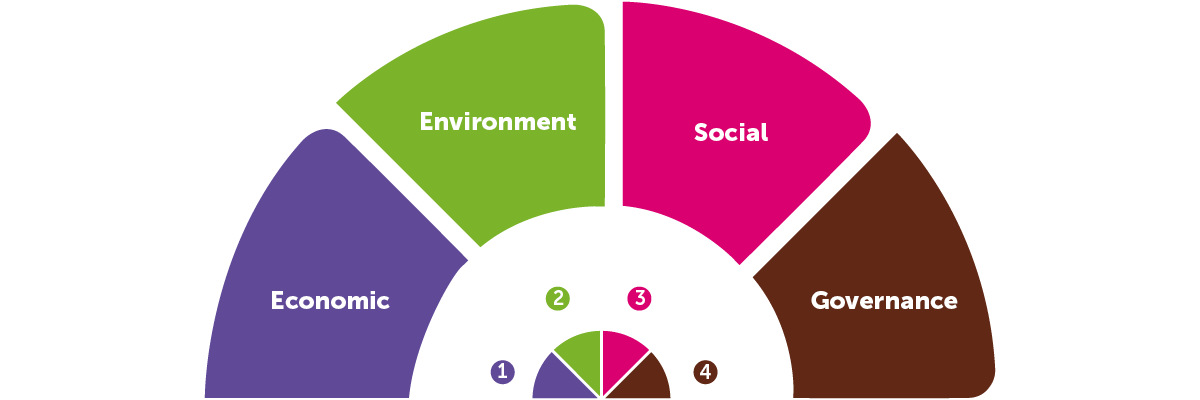

IndianOil strives to derive exceptional value for stakeholders in the long run. To fulfil this endeavour, the Company seeks to identify stakeholder expectations and prioritises material issues to create a systematic roadmap for sustainable value creation. With a thorough evaluation of potential environmental, social and governance issues that might impact our business, the materiality assessment enables us to remain relevant while maximising stakeholder value.
We conduct materiality assessment at frequent intervals. The last materiality assessment survey conducted in 2020-21 enabled us to identify key issues that are extremely important to our stakeholders and integral to our vision. The inputs we received from our stakeholders played a crucial role in defining our materiality matrix. The materiality assessment was concentrated around four key aspects of Economic, Environment, Social and Corporate Governance (ESG). We continue to map our progress against set standards for all material topics, based on their impact on our business operations and stakeholders. We constantly review our progress and take further actions wherever necessary, to improve our business outcomes.
Key Aspects

 1. Economic
1. Economic
| Material Topic | Description |
|---|---|

Market volatility |
Demand fluctuation of end-products. For example, increase in demand for LPG and simultaneous reduced demand for petrol, diesel and ATF during the lockdown. |

Supply chain management |
Engagement with suppliers, sustainability assessment of suppliers and asessement of supply chain related risks from geopolitical circumstances. |

Economic performance |
IndianOil’s overall financial performance (economic value generated and distributed) and related risks, such as growing competition from new and existing players, or risk to profit margins due to changes in regulations. |
 2. Environment
2. Environment
| Material Topic | Description |
|---|---|

Climate change mitigation |
Initiatives taken to reduce emissions and improve day-to-day operational efficiency, including energy conservation. |

Product stewardship |
Offering greener products and renewable energy options, investment in R&D, etc. |

Managing environmental impact |
Mitigating the impact of IndianOil’s operations on the environment and natural resources, particularly related to waste management, water usage, oil spills, and effects on biodiversity. |
 3. Social
3. Social
| Material Topic | Description |
|---|---|

Health and Safety |
Overall employee health and safety, actions taken to ensure employee health during the pandemic, occupational health and safety, etc. |

Customer satisfaction and brand loyalty |
Customer engagement, grievance redressal, privacy, health and safety, delivering products and services in a cost effective manner while ensuring quality, trust and legacy associated with IndianOil’s brand value. |

Employment practices |
Fair employment practices, training and development, benefits, diversity and inclusion, human rights, etc. |

Labour rights and relations |
Relationships with blue collar and contractual employees, human rights concern for employees, etc. |

Community development |
Social upliftment through CSR initiatives as well as indirect impacts on the community due to the organisation’s business and economic performance. |
 4. Governance
4. Governance
| Material Topic | Description |
|---|---|

Compliance and governance |
Following environmental and socio-economic regulatory compliances as per national policies and corporate governance structure. |

Business ethics and accountability |
Upholding ethical practices, including but not limited to anti-corruption and anti-competitive policies, and maintaining accountability of operations. |